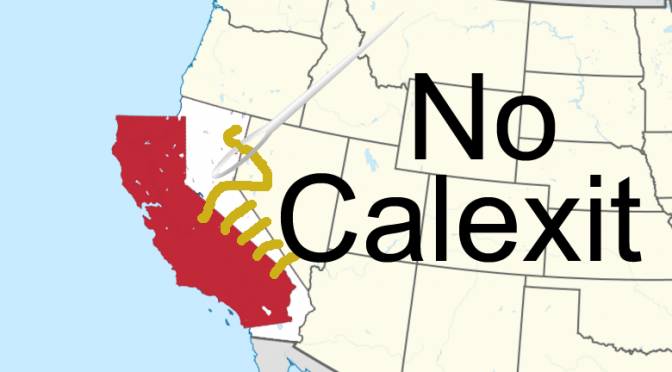Tag: politics
-

Calexit is not funny. It is a horrible idea.
On the eve of the election I was on Facebook and, as things were starting to look grim, one of my friends posted “Jerry Brown will save us.” I thought that was pretty funny and replied about how one of our mutual friends has a “US Out Of California” shirt and maybe I should get…
-
We Were In Denial That a Trump Presidency Could Happen. What Else Are We Denying?
“I’ve been criticized for advocating a politics of fear, which is correct. That’s not a criticism. That’s sanity.” Noam Chomsky, Oct. 11, 2016.((Noam Chomsky and The Bicycle Theory, NYT)) I’m writing this is because I am afraid. There’s a lot of reasons to be afraid of a Trump presidency, but here’s my top two: (1)…